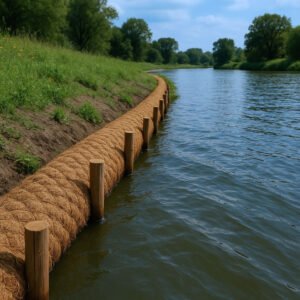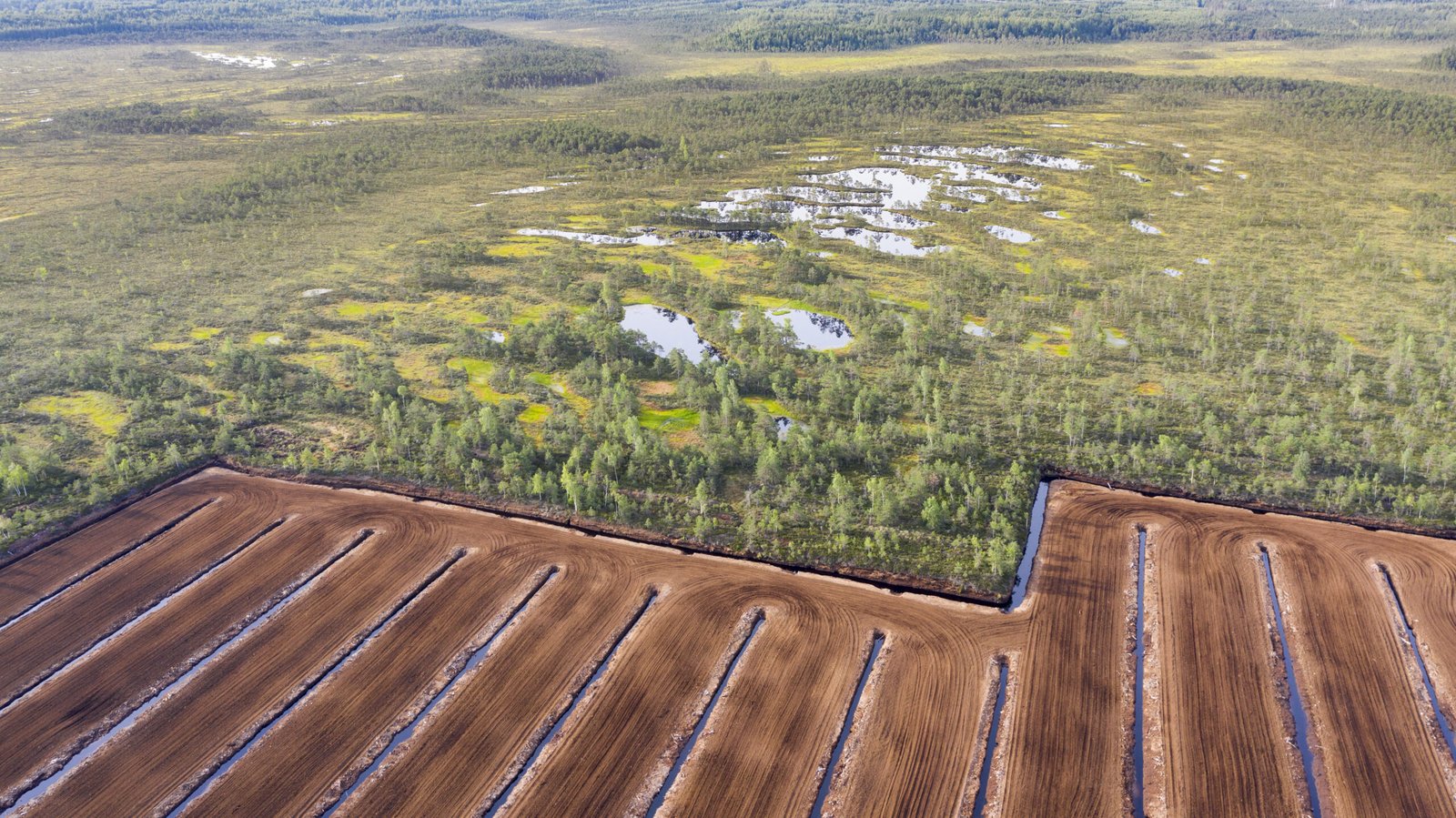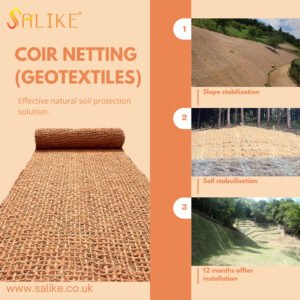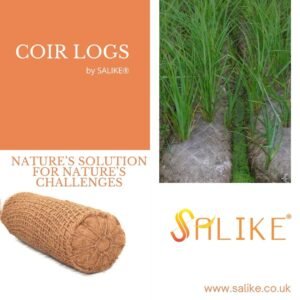
Restoring riverbanks with Salike Coir Logs
Riverbank erosion threatens not only natural habitats but also infrastructure and communities across the UK. Salike®, a leading innovator in sustainable erosion control, has demonstrated

The UK’s decision to ban the sale of peat-based products for amateur gardeners by 2024 represents a significant step in addressing the country’s climate change goals and promoting sustainable practices. Peat has long been a popular component of gardening products, but the environmental cost of extracting peat far outweighs its benefits. As a nation, reducing our reliance on peat helps to safeguard precious ecosystems, cut carbon emissions, and pave the way for more eco-friendly alternatives like coir.
Here’s why the peat ban is a positive move for the environment and why switching to sustainable alternatives is crucial:
The role of peatlands in carbon storage
Peatlands are a type of wetland, and they act as one of the most significant carbon sinks on the planet. Covering just 3% of the earth’s land surface, peatlands store twice as much carbon as all the world’s forests combined, making them critical in the fight against climate change.
When peat is harvested for use in horticulture, these carbon-rich ecosystems are disturbed, leading to the release of stored carbon dioxide (CO2) back into the atmosphere.
Peatlands also play a crucial role in biodiversity, serving as habitats for a wide variety of species including rare birds, plants, and insects. Extracting peat disrupts these ecosystems, leading to the loss of wildlife and damage to biodiversity.
Why peat extraction is harmful
The extraction process for peat is highly destructive. Peat is formed over thousands of years from partially decayed plant material in waterlogged conditions. To harvest it, wetlands are drained, and the peat is scraped from the surface. This process:
Benefits of the peat ban
Banning the sale of peat can help:
Coir: a sustainable alternative to peat
One of the most promising alternatives to peat is coir, which is made from the natural fibres of coconut husks. Unlike peat, coir is a renewable resource that is harvested as a byproduct of the coconut industry. It offers excellent water retention, improved aeration, and neutral pH levels, making it a versatile and sustainable potting medium.
At CoirProducts.co.uk of Salike®, we are proud to offer UK’s largest carbon-neutral coir range, providing growers and gardeners with a high-quality alternative to peat. Not only do our products deliver superior performance in water retention and root development, but they also support ethical practices and contribute to a greener future. By choosing coir, gardeners can help reduce their environmental footprint while still enjoying vibrant, healthy plants.
By protecting peatlands, we safeguard vital carbon stores and biodiversity while reducing harmful greenhouse gas emissions. Sustainable alternatives like coir provide an eco-friendly solution that allows gardeners to continue nurturing their plants without contributing to environmental degradation.
Switching to coir-based products is not only a smart choice for your garden but also a positive choice for the planet. Visit CoirProducts.co.uk to explore our range of carbon-neutral, high-quality coir potting mixes and join the movement towards more sustainable gardening.

Riverbank erosion threatens not only natural habitats but also infrastructure and communities across the UK. Salike®, a leading innovator in sustainable erosion control, has demonstrated

London, UK — Salike®, the pioneering force behind the UK’s largest range of premium coir-based horticultural products, is proud to announce the launch of the

In modern landscaping and gardening, there’s a growing demand for biodegradable, eco-conscious materials that don’t rely on plastics or peat. Salike® coir netting or geotextiles

As the world leans toward eco-friendly solutions, gardeners, landscapers, engineers, and environmental planners are looking for sustainable alternatives to plastic and harmful peat-based products. Enter